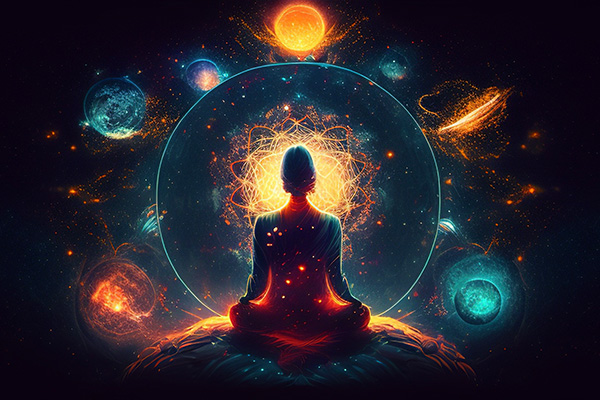nutrition
Tarot Forecast September 2024: Two Of Cups
 The card that came up for this month is the Two of Cups, which carries the symbolism of connection, balance, harmony, mutual affection, and partnership.
The card that came up for this month is the Two of Cups, which carries the symbolism of connection, balance, harmony, mutual affection, and partnership.
In the Rider-Waite Tarot deck, this card depicts a couple standing face to face, each holding a golden cup in one hand. They extend their cups toward each other as if in a toast or exchange, symbolizing a mutual offering of affection, love, support, or a celebration of their shared success. Their gaze is locked, indicating a deep connection and understanding between them.
Above their heads is a caduceus, the ancient symbol of healing, two serpents intertwined, representing their powerful union and the personal and spiritual healing they find with each other. At the top is a winged lion’s head, symbolizing spiritual strength and divine protection in the sacred union of their souls.
The core meaning of this card is the coming together of two individuals. This can be romantic, platonic, or business-related. The emphasis is on mutual respect, harmony, understanding, and a balanced give and take.
The cups also represent emotion. It’s a card of deep emotional intimacy, connection, and a harmonious union based on mutual respect and love. This card often signifies the beginning of a new chapter in a partnership or committed relationship, full of potential and growth.
As we enter this new month, the energy of the Two of Cups will take center stage, guiding us through various aspects of life with themes of harmony, emotional connection and mutual understanding.
The True Meaning Of Being Balanced
 Spiritual teachers often emphasize the importance of achieving and maintaining balance as a fundamental aspect of well-being, personal growth, and spiritual development.
Spiritual teachers often emphasize the importance of achieving and maintaining balance as a fundamental aspect of well-being, personal growth, and spiritual development.
But what does it really mean? Is it about having a healthy work-life balance? Is it about a balanced diet or exercise routine? No, these are just some of the smaller elements of achieving true balance.
Balance refers to being holistically balanced in all aspects of our existence: body, mind, and spirit. Achieving and maintaining balance means creating a harmonious and integrated life in which all aspects of our being support each other, leading to overall well-being and a deeper connection with our true self.
We are more than our physical health, appearance and fitness levels. We are more than our thoughts, ideas, and knowledge. And we are more than our spiritual beliefs and practices. We are a wondrous compilation of all these things that make up our body, mind, and spirit. When any part of us is unhealthy or dysfunctional, it disrupts our alignment with our higher self. This is the true meaning of being out of balance.
Striving to be true to your higher self should always be your priority. Your higher self is the real you, the you that exists in harmony with the universe and is an expression of the divine. It is only when we are in alignment with our higher self that the world truly opens up for so much more to flow into our lives…instead of out of them.
How To Navigate The Chaos Like A Champ
 The physical life adventure we signed up for before we were born has many twists and turns. From our careers and relationships to personal health and world events.
The physical life adventure we signed up for before we were born has many twists and turns. From our careers and relationships to personal health and world events.
While these ups and downs of life and love are exactly what we came here to experience for our personal enlightenment and soul evolution, they can sometimes throw us into moments of chaos, frustration, anxiety and even instense despair.
The key to not becoming disoriented or deflated in these difficult moments is to always remember why we are here in the first place, no matter how crazy things may get. Every time we face adversity or have to overcome setbacks and obstacles, we are making progress on our amazing soul journey.
Embracing the dynamic and sometimes very challenging nature of our existence is essential to fulfilling our spiritual mission. Staying balanced in an ever-changing environment is not just a possibility – it is an exciting opportunity for self-discovery and spiritual empowerment.
Change and uncertainty are inevitable. Developing a mindset of flexibility and adaptability can help you navigate the chaos with greater ease. Surrender to the knowledge that you can’t control everything, but you can control your thoughts, mindset and reactions.Amid chaos and despair, remember: every setback is a step forward in your amazing spiritual odyssey!
Three days ago, a deer collided with my car two hours from home. It did not survive and my vehicle is no longer drivable. The hardest thing for me was the grief of killing one of God’s beautiful creatures. Why did I not see it earlier and react sooner?
Tarot Forecast July 2024: The Tower
 This month’s card is the Tower, which predicts the energies of disruption, revelation, transformation and the breaking down of old structures.
This month’s card is the Tower, which predicts the energies of disruption, revelation, transformation and the breaking down of old structures.
The Tower card is a powerful symbol of sudden upheaval and change. It’s traditionally depicted as a tall tower struck by lightning, representing chaos and upheaval. It represents life throwing us a curveball.
As lightning strikes and flames dismantle the old structure, it forces us to confront our foundations and belief systems. While painful, this destruction can lead to necessary revelations and a chance to rebuild on a stronger foundation. By letting go of what no longer serves you, you open yourself up to new possibilities.
The Tower showing up in a reading, though scary and troubling at first glance, always precedes a period of significant growth. Destruction creates opportunity. Most situations we face are opportunities, even the bad ones. It’s all about the opportunity and how you see it.
Embracing chaos will be the key to clarity and growth this month. This is a time to rebuild and redesign your life in a way that is more in line with your true self.
Approach the month with an open heart and a willingness to let go of what no longer serves you. Whether it’s health, finances, career, relationships or personal growth, the Tower’s influence will lead you to a more liberated and empowered version of yourself. Trust the transformative power of the Tower. Embrace the changes and you will emerge from this month stronger, wiser and more in alignment with your true self.
Replace Nighttime Overthinking With Morning Clarity
 As night falls and the world quiets down, our minds often do the opposite. Many of us find ourselves caught in a relentless tide of overthinking as we replay the past and stress about the future. This mental whirlwind of worry can leave us feeling mentally foggy and emotionally drained, far from our true selves.
As night falls and the world quiets down, our minds often do the opposite. Many of us find ourselves caught in a relentless tide of overthinking as we replay the past and stress about the future. This mental whirlwind of worry can leave us feeling mentally foggy and emotionally drained, far from our true selves.
But within all this turmoil lies a powerful opportunity for personal growth and empowerment. How is this possible? Well, the key to ending the constant spiral and realigning ourselves with our highest good lies in cultivating greater intuitive awareness and mental clarity.
Overthinking at night is a common problem for many of us. In the silence of the night, after being on autopilot all day, our overactive minds become a breeding ground for worry, fear, and regret. Over time, this leads to a vicious cycle of anxiety and insomnia, which leads to more stress the next day, which leads to more anxiety and insomnia the next night, and so on.
The results are not only that we feel constantly tired and energetically drained, but we also lose our sense of self and connection to our soul purpose. Feeling energetically drained and disconnected from our authentic selves, we begin to question our choices and direction in life, leading to increased anxiety and decreased self-esteem. It becomes a very toxic spiral that is devastating to our physical, mental, emotional and spiritual well-being!
Energy Self-Care Strategies For Empaths And Sensitives
 Empaths and highly sensitive people (HSPs) often feel drained by other people and certain environments due to their inherently sensitive nature and the way they interact with the world around them.
Empaths and highly sensitive people (HSPs) often feel drained by other people and certain environments due to their inherently sensitive nature and the way they interact with the world around them.
We face unique physical, mental, emotional and spiritual challenges because of our innate ability to deeply feel and absorb the thoughts, emotions and energies of those around us. While our sensitivity is a blessing and a gift to the world, it can also become a curse through overwhelming experiences of empathic overload and energy depletion.
Energetic self-care is therefore of paramount importance to the sensitive person. Every empath or HSP should adopt a daily routine of energetic self-care practices designed to cleanse, protect and rejuvenate their aura or personal energy field.
Mastering these practices is not only beneficial to our health and well-being, it’s essential for maintaining holistic balance, protecting our mental health in particular, and nurturing our deep connection to the world and those around us.
As empaths and HSPs, we can manage our energy more effectively by employing several strategies that help us maintain our energetic well-being, while navigating a world that can often feel overwhelming. The following are essential tools and strategies that can empower empaths and HSPs to thrive in their sensitivity and turn their deep empathy into their greatest strength through effective energetic self-care:
The Anchoring Vitality Of The Root Chakra
 The chakras play a pivotal role in our energetic well-being. These energy centers, rooted in ancient Eastern philosophies, govern various aspects of our physical, emotional, and spiritual functioning and health.
The chakras play a pivotal role in our energetic well-being. These energy centers, rooted in ancient Eastern philosophies, govern various aspects of our physical, emotional, and spiritual functioning and health.
At the very base of this intricate energy system lies the root chakra, an energetic foundation that holds the key to our sense of security, stability, and connection to the world around us.
The root chakra, also known as the base chakra or muladhara in Sanskrit, is the first of the seven main chakras at the base of the spine. Its significance cannot be overstated, as it is the energetic anchor for the entire chakra system. This energy center is associated with red, symbolizing vitality, strength, and the life force that flows through us.
At its core, the root chakra is linked to our most primal instincts and survival needs. Its activation is crucial for establishing a solid foundation for a balanced and fulfilling life. When the root chakra is in harmony, it fosters a sense of security, grounding, and a deep connection to the physical world.
One of the primary functions of the root chakra is to address our basic survival needs, including food, shelter, and a sense of safety. When this chakra is balanced, we feel secure in our environment, enabling us to navigate life with confidence and stability. On the contrary, an imbalanced root chakra may manifest as fear, anxiety, or a constant sense of insecurity.